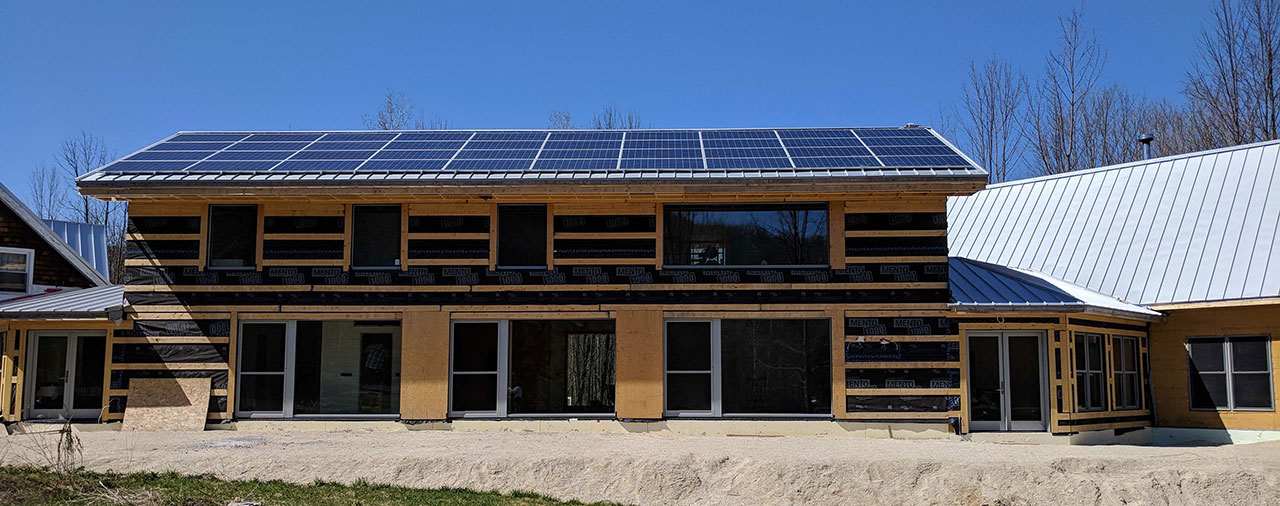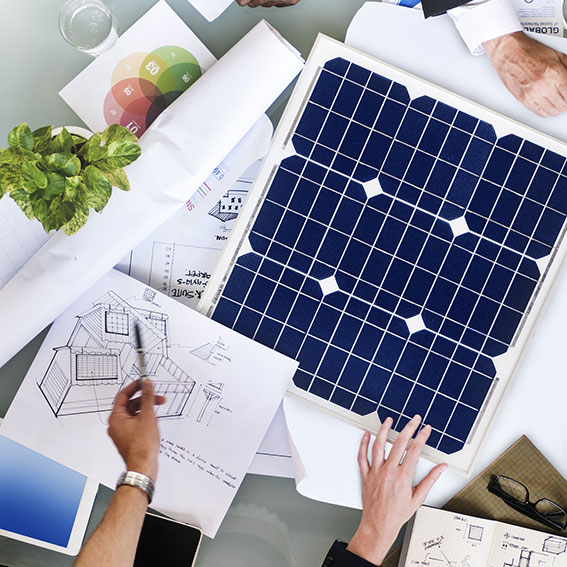
New Builds

Start Planning Early!
Building your own house is both an exciting and monumental task. Numerous decisions have to be made. If you want to incorporate solar, start the planning process as early as the site selection stage. It may seem very basic, but solar production requires sunshine and the more your solar system can access that sunshine, the better your investment will be.
For example, if your dream home is a log cabin surrounded by tall trees in the forest, solar may not work for you – unless you have an open area on the lot where you can build a fairly sizeable garage/workshop or a ground mount solar system.
The second consideration is how you will orient all the buildings on your lot. Solar production is greatest on a south-facing roof and this works best for net metering systems. We also install on east and west-facing roof planes (which may work best for zero export systems), but rarely on those facing north.
Next, let’s consider what will be on your roof: dormers, chimneys, skylights and vents can all have an impact on solar design and energy generation. If possible, keep your best solar producing roof planes as open and clean as possible.
Now let’s move to the inside. Although solar inverters can be installed outside, sometimes it makes more sense for them to be mounted indoors, particularly if you are also considering an integrated ev charger or a battery/storage unit. So, make sure there is ample wall space near your service panel or in your utility room or garage.
Additional Tips
- Email us your building plans so we can prepare preliminary layouts to see how much solar will fit. Note: It makes our job much easier if we are provided with the length of each roof and the vertical height from gutter to peak.
- We estimate the solar system size based on your anticipated electricity consumption, thus it is important to know how you will heat your house and water. Will you install air conditioning? Do you plan to have a hot tub, pool or possibly an electric vehicle in the near future? What about a sump or pond pump, a dehumidifier and/or an HRV (heat recovery ventilator)? These items tend to be the most energy intensive. We don’t get too concerned about lighting, computers, fridges/freezers, etc. as we presume that they will be relatively energy efficient. Note: Your HVAC contractor should be able to provide an estimate of annual energy consumption for the units you choose based on your square footage and other factors.
- Most residential solar systems are at least 6 kW AC unless the house and occupants are extremely energy efficient. Because 10 kW is the maximum size currently allowed for net metering, we suggest planning for this, and it typically requires between ~800-1,000 sq. ft. of roof space.
- Don’t worry about whether the roof will be able to support the additional weight of a solar system. Solar has a very low distributed load and as long as your house is built to code, the structure should be sufficient.
Real Estate Value
Next Steps?
Visit our FAQ page to learn more.
